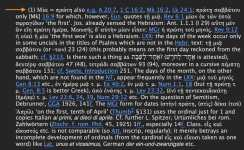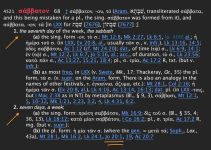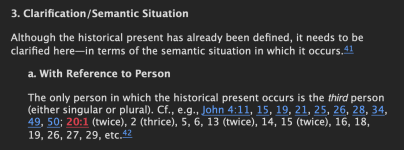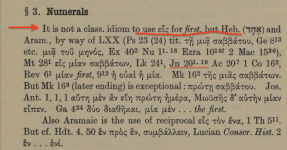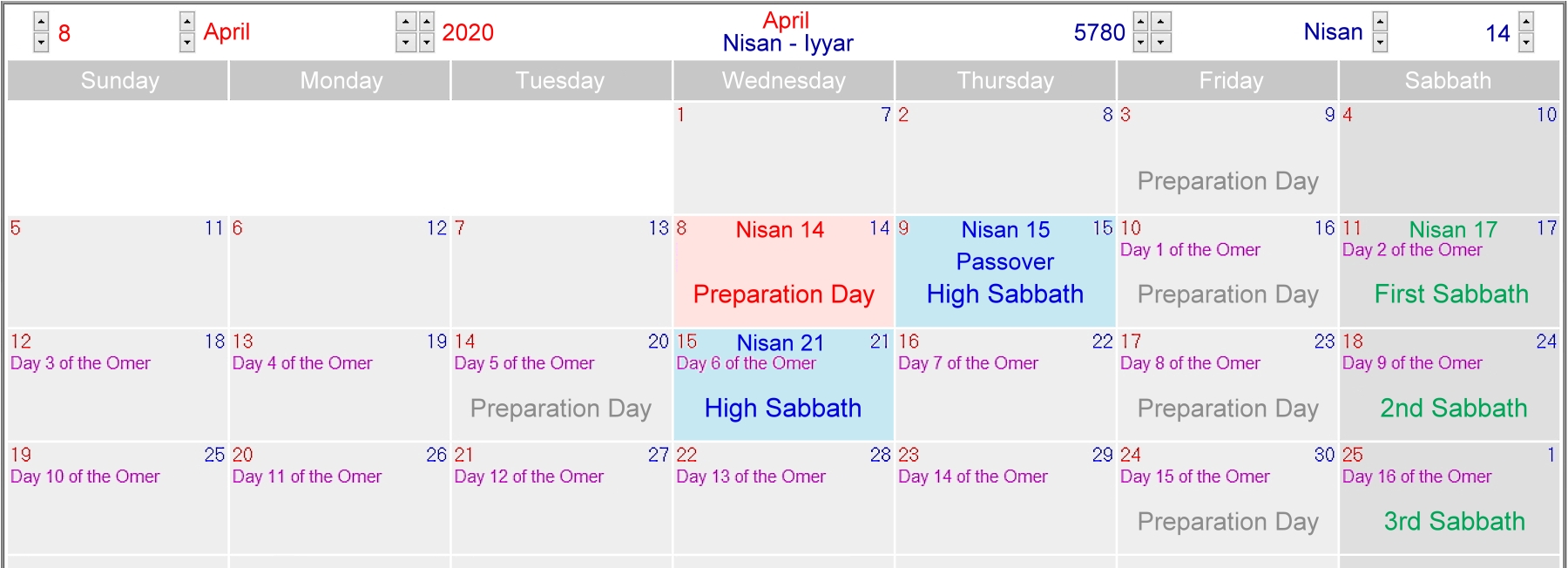Very interesting that the first examples used here are of the passage in question, ie: the day of the resurrection. But let's see if your assertion (and Debrunner's apparently) make any sense when applied. Your assertion : Mia(one)=Protos(first)
Matt 19:30 But many
that are first shall be last; and the last
shall be first.
Re-translated to fit your assertion it equals: But many
that are ONE shall be last; and the last
shall be ONE.
Mark 7:27 But Jesus said unto her, Let the children first be filled: for it is not meet to take the children's bread, and to cast
it unto the dogs.
But Jesus said unto her, Let the children ONE be filled: for it is not meet to take the children's bread, and to cast
it unto the dogs.
Just do it yourself. There are tons of passages in the bible where substituting ONE for FIRST and vice versa, simply makes the passage without sense. Your apologists are ready with this answer when it suits the 1st day resurrection, but fail in the overall application of what they assert. They seem to be saying that the Greeks couldn't differentiate between the cardinal and ordinal forms, which is sort of basic when communicating amounts or position in every day language. Sorry, this is ridiculous.
The word for "week" and Sabbath are the same.
View attachment 2048
Context and syntax determines usage. Here Abbott-Smith, as every other lexicographer does, says it means "week" in John 20:1.
George Abbott-Smith,
A Manual Greek Lexicon of the New Testament. (Edinburgh, T. & T. Clark, 1922), pp. 399-400.
So pitiful and pathetic. You just could not admit that Wallace's grammar made no such claim.
I would ask you to do the same exercise as above, replace Sabbath with week wherever one finds it and see how that works. Why do you heal on the Week? Wait, what?? You mean sabbath right? No mate, week.
This is what's pathetic. You're just quoting an apologist without actually thinking about the application of what he says!
And besides, I already already pointed out that there IS a word for week in Greek, that would have been known at the time.
The word is "ἑβδομάς" or hebdomas and can be found in passages such as:
Genesis 29:27
Leviticus 23:15
Daniel 9:24
(in the LXX or Septuagint, available at the time!)
Sure! In Greek the phrase is idiomatic. Thus the addition of the word "day" in English is necessary for clarification. That are many example of that.
The fact is you don't know Greek. You don't understand anything about the grammar\syntax. End of story.
I know that the word "day" is added to fit the gender tense of "One" in John 20:1. In fact, it's added to every single resurrection passage, in English translations.
But what's really dishonest is that in this phrase "of the week"...if it were actually week not sabbath, should be correctly translated "weeks" because it's in plural form.

